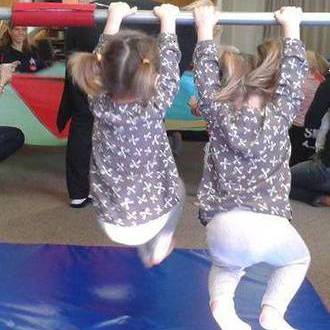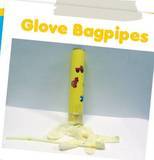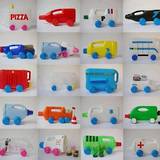Shop
01662
https://www.under5s.co.nz/shop/Hot+Topics+Articles/Activities/Sports/Physical+education+in+the+early+childhood+years.html
Physical education in the early childhood years
|
Research has shown that early childhood physical education is important and improves more than just physical wellness. It also assists and improves mental and emotional development in children too. The earlier the age physical education is taught, the earlier children begin to develop the ability to think critically.
|
You might also be interested in ...
Glove bagpipes
Such fun! Kids will love these glove bagpipes. Teach them to play different notes and make up a band with their friends. They’ll learn about music and rhythm, perseverance, concentration and hand-eye co-ordination skills.
Make your own recycled trucks
Recycling can be so much fun! Kids will love playing with these recycled trucks made from old plastic bottles or containers and other items you have around the house. Building recycled trucks comes with benefits too, getting kids to use their imagination and concentration skills as they come up with different designs.
join usJoin us on social media for all our latest news. |
sign upSign up and receive our latest newsletters. |
|







Benefits of early physical education
The earlier the age physical education is taught, the earlier children begin to develop the ability to think critically.
Physical education can not only help children fight obesity, but it can also help to strengthen their self-esteem and help them to overcome the barriers they may face later in life.
Early child physical education and preschool sports helps toddlers and preschoolers begin to develop problem-solving, self-evaluation and decision-making skills.
Physical education teaches them in a way that facilitates the development of these higher-order cognitive skills.
Experiential learning
There is a theory in the education world that involves what is called the ‘experience factor’ or ‘experiential learning’.
Studies have shown that experiential learning can not only instil knowledge in young children, but it can also develop their ability to think critically and apply the knowledge to real-life situations.
Experiential learning involves 3 components: modelling, collaborating, and simulating.
3 Components of experiential learning
1. Modelling means that a teacher demonstrates to a child/children a skill that is to be learned.
2. Collaborating means that either a teacher works with one child or a group of children, or children work with their peers.
3. Simulating is using the skill in a way that mirrors real-world situations.
Physical education & experiential learning
Physical education is itself experiential learning.
Here's an example of what might happen in a preschool sports or physical activity class for instance:
1. Modelling - A teacher shows a group of children how to properly perform a skill.
2. Collaborating - The children begin to practice the skill amongst themselves. The teacher goes around to all the children either individually or as a group to further reinforce the learning of the skill.
3. Simulating - The children then use that skill in a real-world game situation.
If children can learn to make good decisions on their own, they will be more apt to doing things on their own and looking for help instead of never asking questions.
Tell your friends
Like the article you've just been reading? Click on the Refer A Friend link at the top of the page and send the details to friends who might like to read it too.More Hot Topics for you to enjoy
Source: This article was written by Jumping Beans - fun, child-centred, physical activity and movement to music classes for babies and pre-schoolers aged 6 weeks to 6 years.